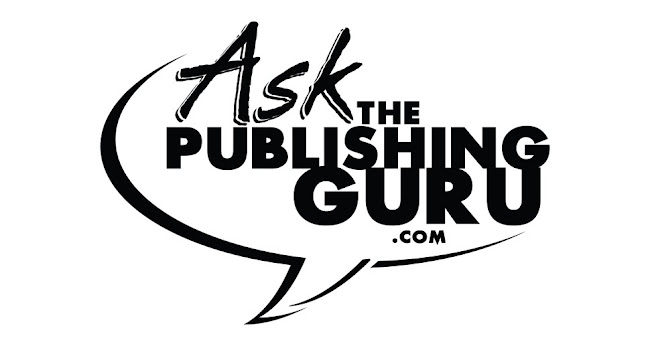 |
| http://www.flickr.com/photos/kevint/ |
Guest post by Deborah Riley-Magnus
Author success can mean different things to each author. Some are thrilled to have penned 50,000 words in a limited amount of time. Many imagine that signing with a literary agent or publisher is author success. And still others feel that holding a book emblazoned with their name is author success. I’m proposing that REAL AUTHOR SUCCESS is something slightly different. Real author success is what happens after the book is out there and gauged by how it’s received … because these days, making your book a sales success is all on your shoulders.
The difficulties and struggles authors face in today’s publishing industry twists and turns can sometimes feel like a crazy hurricane but there’s no need. Real author success is within every author’s reach and far simpler than you think.
Come closer, let me whisper this big secret …
- The answers are all hidden right inside your manuscript
- And the implementation of great marketing, promotion and publicity is as much creative fun as it was to write your book.
See, the common concept of author marketing and promotion falls under the “same-old-same-old” theory. If all the other authors are pricing their ebooks at $0.99, you do it too. If they’re giving away books, so do you. If twitter authors are posting their book videos, you need a book video so you can post it as well. And if facebook has become a place for authors to show off their marketing strategies to each other (and notice … often this showing off is to other authors and seldom to prospective book buyers), you need to hook up with those authors too because of course, you need to do those strategies too.
Please understand, I don’t think any of these things are bad. The only problem is that now everyone is doing the same thing and to me, it starts to sound like a lot of noise
I have a suggestion. If an author looks carefully into their own manuscript and discovers the unique marketing approaches right where they wrote them, no other author can copy them. What a way to stand out. It’s so hush-hush.
All right, it’s not such a big secret, but have you noticed that very few authors actually look for unique ways to market and promote? It’s not difficult at all but it does take a little time to seriously strategize marketing and promotions that are built for powerful impact. It’s easier to do what everyone else is doing.
May I ask a question? Did you write your book like everyone else does? Did you copy their characters, plots or literary voice? Of course not. So why drop the ball at the most important juncture of your career? Why forget to be creative, original and powerful with your marketing? Your book deserves at least that much.
Standing apart isn’t standing alone, it’s all about SHOUTING YOUR UNIQUE MESSAGE and it’s the most basic of all marketing techniques. Everything that makes you and your book special is inside your manuscript. If there are a thousand mystery authors out there doing free giveaways, low pricing and silly contests, and you are announcing not only a different message but to a different – more targeted - audience, it can only result in book sales. For example …
Let’s say your book takes place on the New England coast. The murder occurs in the late 1800s and the story unfolds when a lovely woman discovers the body of a long-missing sea captain in a lighthouse. You can simply shout out the title of your book to every twitter and facebook listener you can reach. You can post your book cover everywhere and make a book video and tell all your friends and followers. It’s what every other author does and yes, you should do that.
BUT … you can go a lot further. Here are a few ideas.
- Hold speaking engagements/book signing events in lighthouses
- Request that lighthouse gift shops all over the east and west coast carry a few copies of your book on their shelves
- Locate historical lighthouse groups online and join … talk lighthouses and make sure your book is prominently displayed on all your emails
- Donate a portion of your sales to lighthouse restoration organizations, and ask if they’ll permit you to post your book cover and purchase link on their website or in their newsletter
- Blog about the things lighthouse lovers might be interested in
- Become an expert on lighthouses and the era so you can blog or speak on the subject to anyone interested in historic mysteries
- And finally, remember, there are LOTS of mystery lovers who aren’t members of the mystery readers book clubs you find online. Take a leap and ask nurses groups, gardening groups, needlepoint groups, even antique lovers groups if they’d be interested in having you come speak about your book at one of their meetings. Trust me, these folks are always looking for interesting subject matter to offer their members.
Okay, so there are no lighthouses or dead bodies in your book. If your book has a major event or most scenes taking place in a coffee shop or Italian restaurant or at a truck shop or on a dude ranch, there’s no reason you can’t dig as deep and find between five and ten new target book buyer groups. It’s the road less traveled and there are LOTS of prospective fans on that road.
All of this can be fun, it’s definitely creative, and above all, not crowded with a million other authors trying to get your book buyer’s attention. And the best part … it’s completely unique to the book you wrote.
How’s that for Real Author Success! To help get you started, I’d like to offer you a FREE 10 Tools for Author Success PDF handbook. Just go to http://theauthorsuccesscoach.com/ and click on the downloadable link.
I’m also offering a free ebook copy of my book, Finding Author Success – the winner will be drawn from those who comment on this blog.
ABOUT THE BOOK
Finding Author Success: Discovering and Uncovering the Marketing Power Within Your Manuscript.
Even the odds for authors with this one-of-a-kind guide to marketing success! Deborah Riley-Magnus takes tried and true marketing, publicity and promotional strategies and tailors them for the unique needs of today’s author. Every element is outlined and explained for easy implementation. You will learn:
- How to develop a functional and strong book business plan
- The power of developing effective, targeted platforms
- The basics of publicity, marketing and promotion
- How cross marketing works and why it’s magic for an author
- How to personalize it all to your book
Finding Author Success will take away the mystery about gaining sales and increasing exposure for your book and you as a professional author.
A portion of “Finding Author Success” sales is donated to the American Literacy Council. The American Literacy Council’s main purpose is to convey information on new solutions, innovative technologies, and tools for engaging more boldly in the battle for literacy.
ABOUT THE AUTHOR
Deborah Riley-Magnus is an author and an Author Success Coach. She has a twenty-seven year professional background in marketing, advertising and public relations as a writer for print, television and radio. As an Author Success Coach she focuses exclusively on publicity, marketing and promotional solutions for authors.
Deborah produces several pieces weekly for various blogs and websites including her author website and Unruly Guides, and an author industry blog, Deborah Riley-Magnus,Writaholic. She teaches online and live workshops as an Author Success Coach. In January of 2012, she will be launching a new online publication called the Whispers of the Muse Literary Magazine.
A native of Pittsburgh, Pennsylvania, she has lived on both the east and west coast of the United States and has traveled the country widely.
LINKS
Finding Author Success: Discovering and Uncovering the Marketing Power
Within Your Manuscript
Amazon Kindle
http://www.amazon.com/Finding-Author-Success-Discovering-ebook/dp/B0061NW5BC/ref=sr_1_3?s=books&ie=UTF8&qid=1320173201&sr=1-3
Amazon Paper
http://www.amazon.com/Finding-Author-Success-Deborah-Riley-Magnus/dp/1926760662/ref=sr_1_4?s=books&ie=UTF8&qid=1320173201&sr=1-4
B&N Paper and ebook
http://www.barnesandnoble.com/w/finding-author-success-deborah-riley-magnus/1106661344?ean=9781926760667&itm=1&usri=finding%2bauthors%2bsuccess
APPLE
http://itunes.apple.com/us/book/finding-author-success/id473774819?mt=11&ign-mpt=uo%3D4
SONY
http://ebookstore.sony.com/ebook/deborah-riley-magnus/finding-author-success/_/R-400000000000000525040
DEBORAH RILEY-MAGNUS LINKS
I blog - http://rileymagnus.wordpress.com/
I teach - http://theauthorsuccesscoach.com/
I fiction – http://coldincalifornia.com
I write - http://deborahriley-magnus.com/
I tweet – http://twitter.com/rileymagnus
I facebook - http://www.facebook.com/deborah.rileymagnus
I should be sooo tired!
Note: Sometimes free article writing services can be helpful to spur inspiration when faced with the occasional yet inevitable writer's block.














